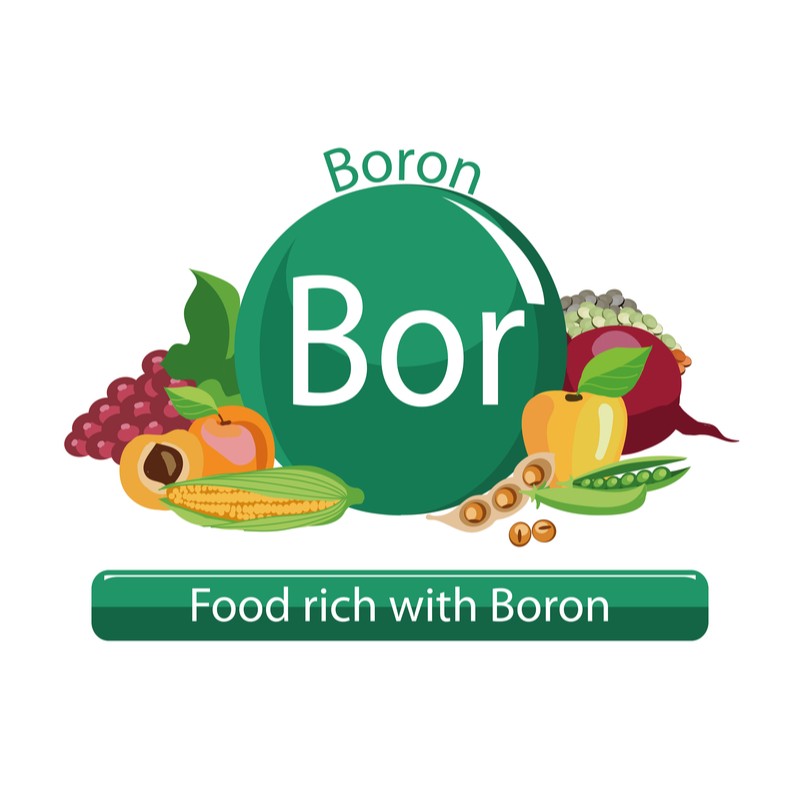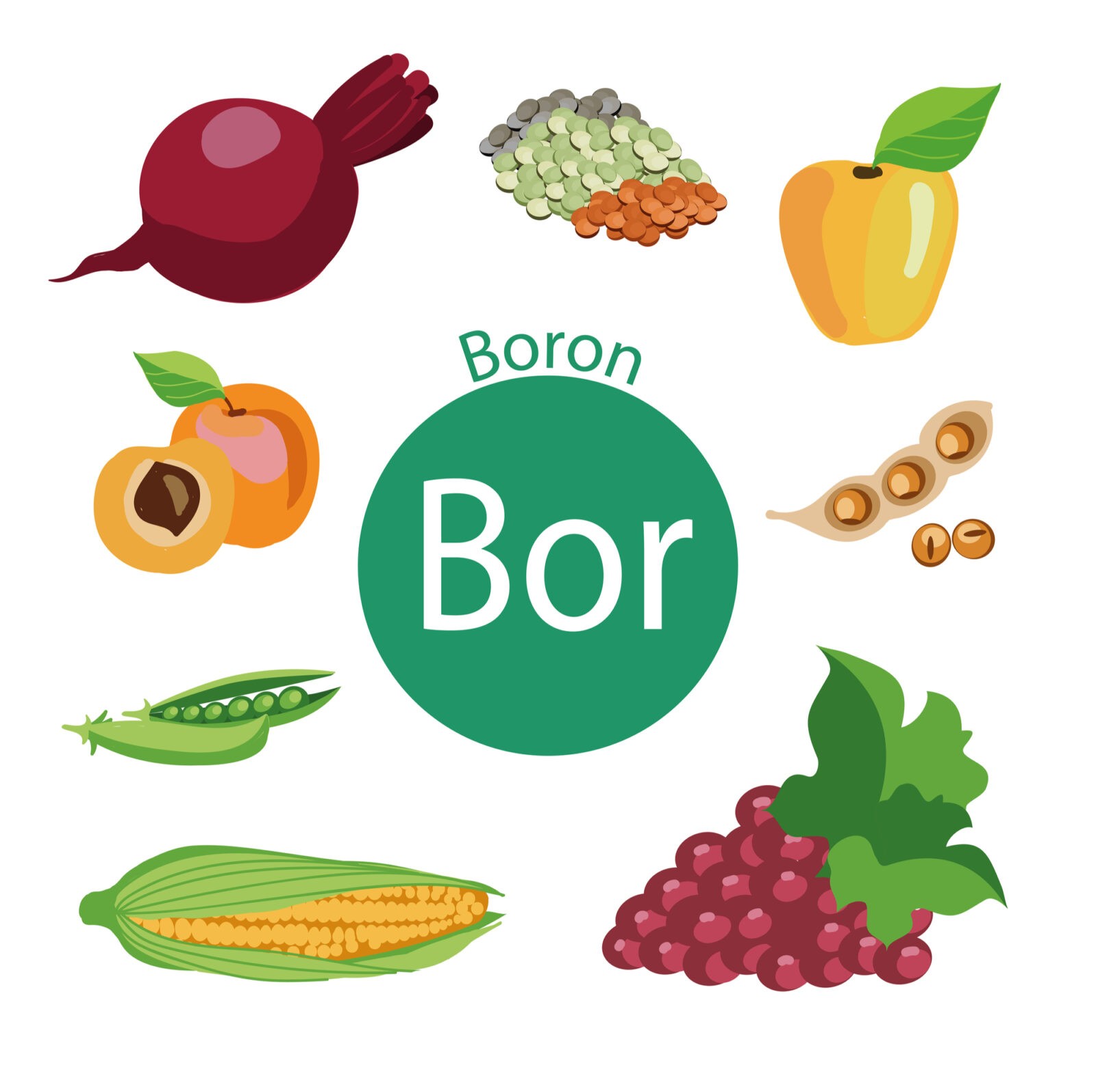Role of Boron in the body

Boron plays an important role in osteogenesis, and its deficiency has been shown to adversely impact bone development and regeneration.2 Boron influences the production and activity of steroid hormones, actions via which this trace mineral is involved in the prevention of calcium loss and bone demineralization. Boron supplementation has repeatedly been shown to markedly reduce urinary excretion of both calcium and magnesium and to increase serum levels of estradiol and calcium absorption in peri- and postmenopausal women.1,3 Boron also beneficially impacts vitamin-D utilization. Supplementation with boron stimulates bone growth in vitamin-D deficient animals and alleviates dysfunctions in mineral metabolism characteristic of vitamin-D deficiency.
Symptoms of Boron Deficiency

In humans, boron deficiency signs and symptoms have not been firmly established. Limited data suggest that boron deficiency might affect brain function by reducing mental alertness and impairing executive brain function. In addition, a low-boron diet (0.25 mg boron/2,000 kcal) might elevate urinary calcium and magnesium excretion and lower serum concentrations of estrogen in postmenopausal women. Low boron intakes (0.23 mg boron/2,000 kcal) also appear to reduce plasma calcium and serum 25-hydroxy vitamin D levels and raise serum calcitonin and osteocalcin levels in men and women; these changes could affect bone mineral density.
Symptoms of Boron Toxicity

Large quantities of boron can also cause poisoning. Signs of poisoning include skin inflammation and peeling, irritability, tremors, convulsions, weakness, headaches, depression, diarrhea, vomiting, and other symptoms. headaches fever passing out feeling sick throwing up blood in your vomit diarrhea black poop abdominal cramps brown ring-shaped markings in your eyes (Kayser-Fleischer rings) yellowing of eyes and skin (jaundice) Copper poisoning may also cause the following mental and behavioral symptoms: feeling anxious or irritable having trouble paying attention feeling overexcited or overwhelmed feeling unusually sad or depressed sudden changes in your mood Long-term copper toxicity can also be fatal or cause: kidney conditions liver damage or failure heart failure brain damage
Good Sources of Boron

The main sources of boron in the diets of people in the United States are coffee, milk, apples, dried and cooked beans, and potatoes, primarily because people tend to consume large amounts of these foods. Among toddlers, 38% of boron intakes come from fruits and fruit juices and 19% from milk and cheese. For adolescents, milk and cheese products account for 18%–20% of boron intakes, whereas beverages, especially instant coffee, represent the largest dietary source of boron for adults.

Dr. Stewart's Recommendation
Lorem ipsum dolor sit amet, consectetur adipiscing elit, sed do eiusmod tempor incididunt ut labore et dolore magna aliqua. Ut enim ad minim veniam, quis nostrud exercitation ullamco laboris nisi ut aliquip ex ea commodo consequat.
